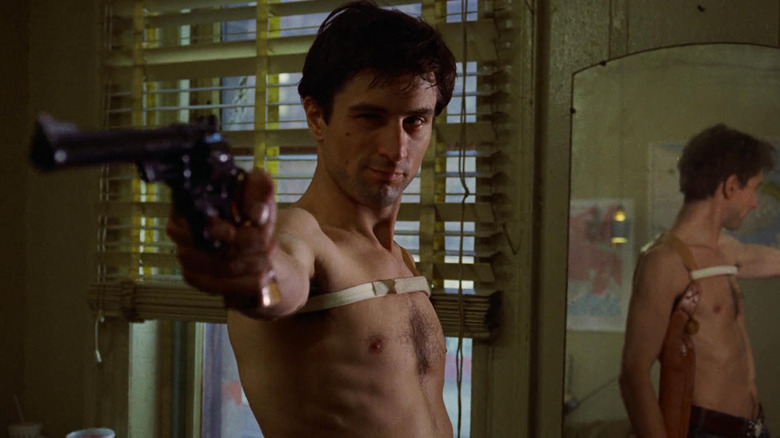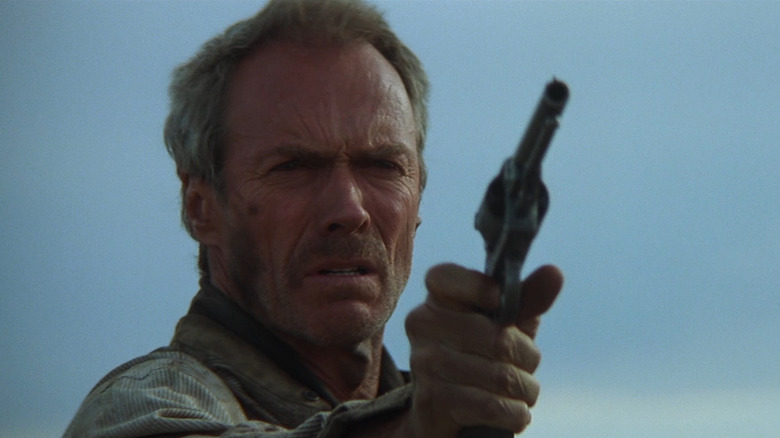The Surprising Influence Taxi Driver Had On Unforgiven's Script
Martin Scorsese's "Taxi Driver" and Clint Eastwood's "Unforgiven" have both racked up numerous accolades, including Academy Award nominations for Best Picture (in the case of "Unforgiven," a win) as well as spots on the American Film Institute's list of the 100 greatest movies of all time. Beyond that, these two films would, on the surface, seem to be different genres and not have very much in common. "Taxi Driver" is a crime film set in New York in the 1970s, while "Unforgiven" is a Western set in Wyoming in the 1880s.
You might not think they share the same creative DNA, but for David Webb Peoples, the screenwriter of "Unforgiven," "Taxi Driver" was a major influence. Peoples is also known for his work as a co-writer on "Blade Runner" and "12 Monkeys," the latter of which he penned with his wife, Janet Peoples. For "Unforgiven," however, he was the sole credited screenwriter. In a 2014 interview with That Shelf, Peoples said:
"Unforgiven is tremendously influenced by [screenwriter] Paul Schrader's work on Taxi Driver. Nowadays I look at something like The Sopranos and [creator] David Chase's voice and I wish we could have done something like that. And Breaking Bad, too. What a masterpiece! If I were starting out today, I think I would be more influenced by that than I would be the movies, but it's all about trying to write about things in the area that has the works that you admire the most. It's about trying to do something as exciting as The French Connection or as exciting as Jaws. You're trying to do it not by copying them, but by being influenced by what they do."
The Approach to Film Violence
For Peoples, the connection between "Taxi Driver" and "Unforgiven" goes deeper than general admiration. Both films center on solitary figures, killers who administer their own brand of vigilante justice in a building full of men.
The book, "FilmCraft: Screenwriting," edited by Tim Grierson, contains a lengthier quote from Peoples (via The Clint Eastwood Archive), in which he explains how "Taxi Driver" informed his approach to the violence in his script for "Unforgiven." He explained:
"When I first started writing, I didn't want to have anybody get killed in any script I wrote because I was just so put off by the unreality. When people get killed in the movies, it's like in James Bond, which is perfectly legitimate because James Bond is James Bond, and that's the reality they set up. But even in other movies, you kill 10 people and then you go have breakfast – it's as if it didn't have any impact whatsoever. But all of a sudden I see Taxi Driver and people are getting killed, and the characters maintained how they would be in real life. But at the same time, it's an entertaining movie, and that was always important to me – I wanted to write things that were entertaining. I didn't want to write obscure art pictures with little lessons in them—I wanted to write entertainment. Taxi Driver opened up what entertainment could be. It said, 'Yeah, you can write this kind of stuff and it'll be entertaining.' "
Knowing that "Taxi Driver" helped shape the fabric of "Unforgiven" like this might be a good excuse to go back and double-feature these two films, paying close attention to where and how the former echoes across the latter.

